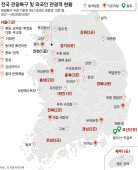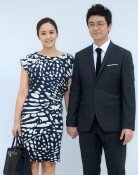Between asylum and escape
Milan Kundera (84) who was born in the Czech Republic and has lived in exile in France since 1975 is one of the foreign writers especially adored by Korean readers. His best-known work is The Unbearable Lightness of Being, which depicts the love story of four men and women weighed on by historical turmoil in 1968, the Prague Spring. The novel has sold more than 700,000 copies in Korea since its first translation in 1988. People are also familiar with a movie of the same title starring Daniel Day-Lewis and Juliette Binoche. Minumsa Publishing Group, a major Korean publisher, has recently finished publishing the complete 15 works of Milan Kundera for the first time outside France.
The writer has been given mixed reviews in his homeland of the Czech Republic. The old generation sees him a disgraceful writer who abandoned the people suffering under the communist regime. Many of his novels are banned in the country. Some also criticizes him for writing novels in French, not in Czech, his mother tongue.
However, the younger generation in the country has a different view. They respect the achievements made by this great writer who is also a perennial contender for Noble Prize in Literature and consider it positive that he has found another hometown through a new culture and language. Mikhail Prochazka, the head of Czech Tourism Office to Korea, put it this way. Negative feelings about Kundera are in vain. They are only a reflection of frustrations of people who have come over from the bitter times. Kundera has been excellent in capturing the tragedy and mentality of people stuck in between in the midst of cruel historical chaos based on rich knowledge and bitter sarcasm. Such a virtue must have been garnered from his personal experiences during the times.
He is a writer who has proved novels are essential to human beings just like bread, said famous poet Luis Aragon about Kundera. Czech peoples mixed views toward the writer can be understood in the context of the fact that he is a great writer from a small and weak country with tragic history in the 20th century. Without agonizing contemplation on situations of the times, it would be difficult to judge whether his decision of moving to France was an exhausting asylum or an escape to a safe haven. The dichotomous approach toward past history makes us look back on the unbearable lightness of judgment.
Editorial Writer Koh Mi-seok (mskoh119@donga.com)
Headline News
- N. Korea redefines S. Korea as ‘hostile state’ in revised constitution
- Samsung develops graphic DRAM with industry-leading capacity and speed
- Three questions allegedly leaked via text message during Yonsei Univ. essay test
- China to inject 340 trillion won in loans to support real estate sector
- Dodgers beat Mets to take 2-1 lead in NLCS







